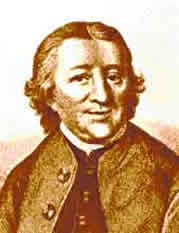The usual method of gospel doctrine, as it is delivered to us in the Holy Scriptures, is first, to comfort our hearts, and in this way to establish us in every good word and work (2 Thess. 2:17). And it appears how clearly this method is adjusted in several Epistles written by the apostles, in which they first acquaint the churches with the rich grace of God towards them in Christ, and the spiritual blessings which they are made partakers of for their strong consolation, and they exhort them to a holy conversation, answerable to such privileges. And it is not only the method of whole Epistles, but of many particular exhortations to duty, in which the comfortable benefits of the grace of God in Christ are made use of as arguments and motives to stir up the saints to a holy practice; which comfortable benefits must first be believed, and the comfort of them applied to our own souls, or else they will not be forcible to engage us to the practice for which they are intended.
To give you a few instances, out of a multitude that might be alleged, we are exhorted to practice holy duties because we are dead to sin and alive to God through Jesus Christ our Lord (Rom. 6:11); and because sin shall not have dominion over us, for we are not under the law, but under grace (Rom. 6:14); because we are not in the flesh, but in the Spirit, and God will quicken our mortal bodies by His Spirit dwelling in us (Rom. 8:9, 11); because our bodies are the members of Christ and the temples of the Holy Ghost (1 Cor. 6:15, 19); because God has made Him to be sin for us, who knew no sin, that we might be made the righteousness of God in Him (2 Cor. 5:21); and has promised that He will dwell in us, and walk in us, and be to us a Father, and we shall be to Him sons and daughters (2 Cor. 6:18; 7:1); because God has forgiven us for Christ’s sake, and accounts us His dear children; and Christ has loved us, and given Himself for us; and we, that were sometimes darkness, are now light in the Lord (Eph. 4:32; 5:1, 2, 8 ); because we are risen with Christ and, when Christ, who is our life, shall appear, then shall we also appear with Him in glory (Col. 3:1, 4); because God has said, ‘I will never leave you, nor forsake you’ (Heb. 13:5); because of the many promises made to us (2 Cor. 7:1). Search the Scriptures, and you may with delight see that this is the vein that runs through gospel exhortations, and you may find the like vein of comfort running through the prophetical exhortations in the Old Testament.
Some may object that the apostles used this method, in their writings to saints, who had practiced holiness already, that so they might continue and increase therein. But to that I may easily reply, ‘If it be a method needful for grown saints, much more for beginners, that find the work of obedience most difficult and have most need of strong consolation.’ And I hope to show how we may be able to lay hold of these consolations by faith, in the very first beginning of a holy life. Besides, the gospel proposes peace and comfort freely to those that are not yet brought to holiness that, if they have hearts to receive it, they may be converted from sin to righteousness. When the apostles entered into a house they were first to say, ‘Peace be to this house’ (Luke 10:5). At their very first preaching to sinners, they acquainted them with the glad tidings of salvation by Christ, for everyone that would receive it as a free gift by faith (Acts 3:26; 13:26, 32, 38; 16:30, 31). They assured them, if they would but trust heartily on Christ for all His salvation, they should have it, although they were at present the chief of sinners – which was comfort sufficient for all that duly esteem spiritual comfort, hungering and thirsting after it. And this is a method agreeable to the design of the gospel, which is, to advance the riches of the grace of God in all our spiritual enjoyments. God will give us His consolations before our good works, as well as after them, that we may know that He gives us everlasting consolation and good hope through grace, and not through the procurement of our works (2 Thess. 2:16).









